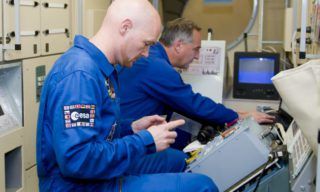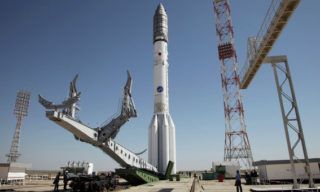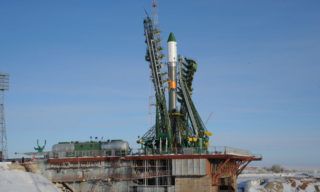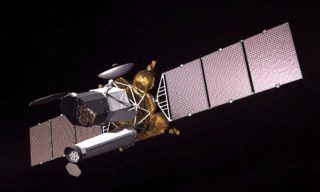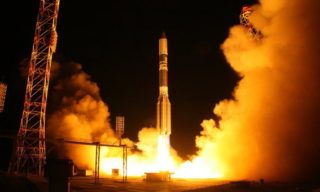On February 28 at 00:37 (Moscow time) from the Guiana Space Center the first OneWeb-pilot spacecrafts were launched with a “Soyuz-ST-B” rocket with an upper stage “Fregat-M”.
The launch was carried out within the framework of the “Glavkosmos” contract with the “Arianespace” company, in close cooperation with the Russian enterprises “Progress” RSC, NPO “Lavochkin” and “TsENKI”.
With an altitude of about 1000 km and an inclination of 87.77 degrees, 6 first spacecrafts were launched into orbit.
Also during the mission of the “Fregat” upper stage, the complete cyclogram of launching of 32 OneWeb spacecrafts were successfully worked out in one launch, which is planned to be implemented during subsequent launches.
In total, during the mission of the “Fregat” upper stage ten active steps were provided: three inclusions of the marching engine system, the last of which brought the upper stage into the orbit of “flooding”, and seven engine inclusions, which provided a cyclogram for the separation of 32 satellites
OneWeb low-orbit spacecrafts are designed to provide high-speed Internet directly via satellite.
The total orbital group will consist of 18 separate groups with 36 spacecrafts each.
Satellite launches are planned from the Vostochny, Baikonur cosmodromes and Guiana Space Center.





